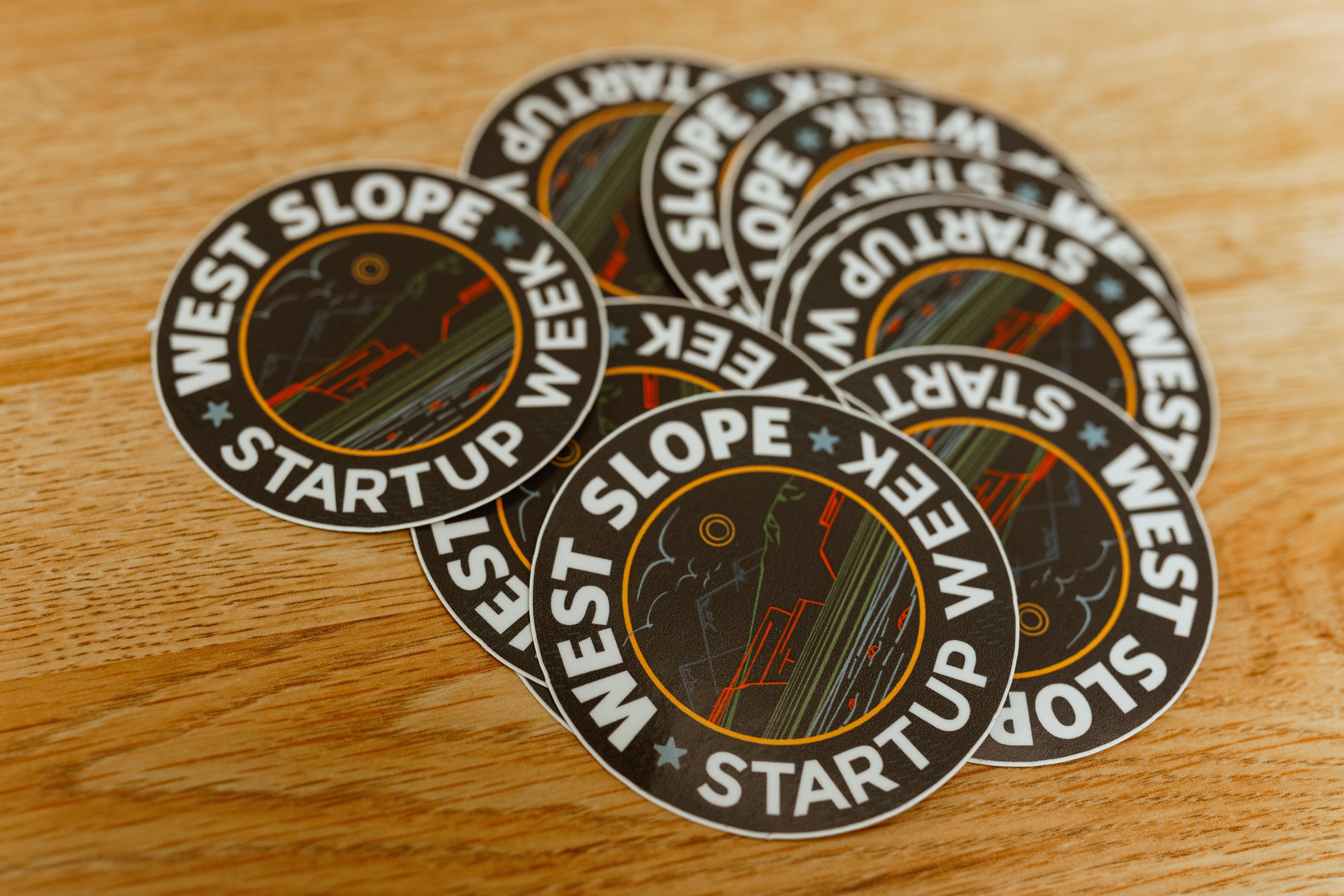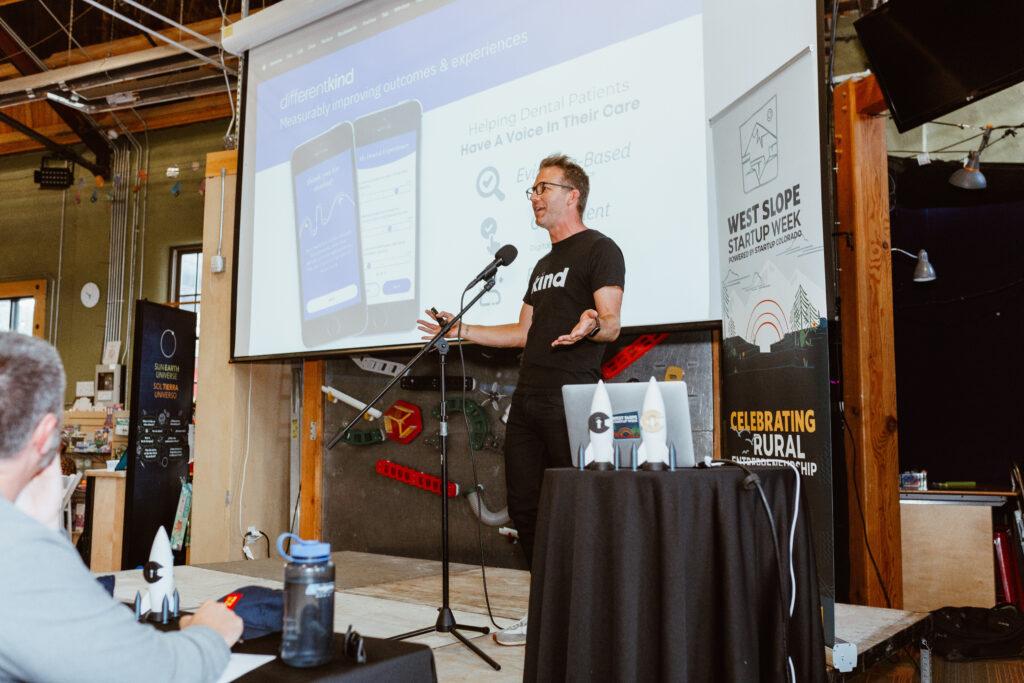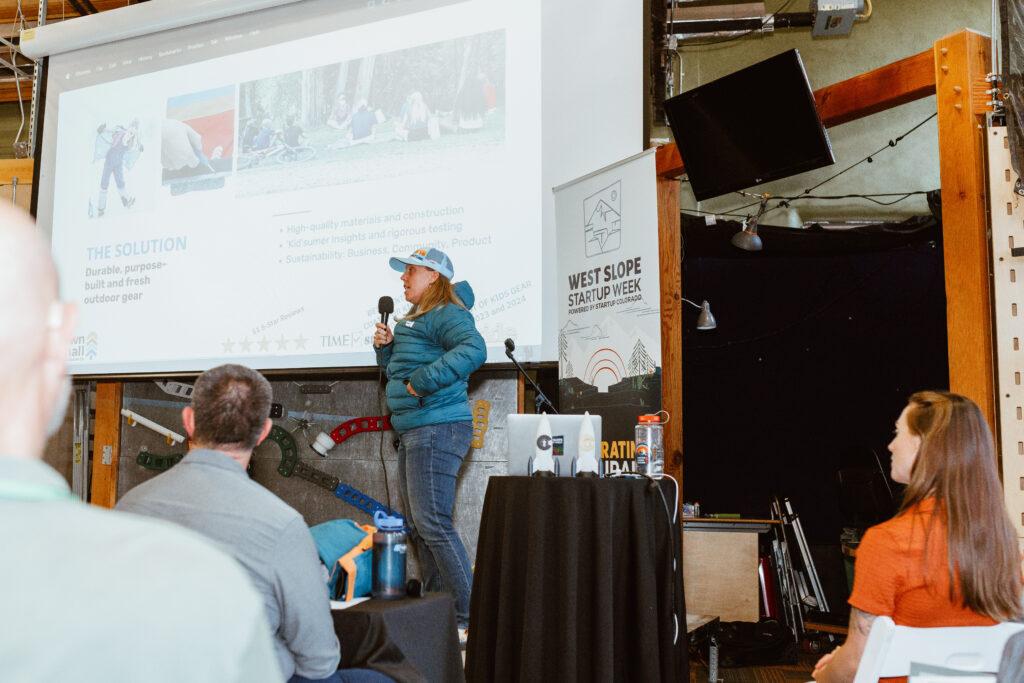
About 150 people gathered at the Powerhouse Science Center in Durango on a recent Thursday to cheer on entrepreneurs in a pitch competition at the annual West Slope Startup Week. Hundreds of thousands of investment dollars from venture capitalists was on the line.
When people think of Colorado startups, they tend to think of the tech scene on the Front Range. But there’s more to the state’s startup culture, according to Margaret Hedderman, a spokesperson for Startup Colorado, the nonprofit that organized the pitch competition.
“The biggest goal for the pitch competition in terms of investors is really raising the awareness of the businesses that are launching in rural Colorado and try to break down that stereotype that it's only on the Front Range, it's only in urban areas that you're going to find a business to invest in,” Hedderman said.


Startup Colorado aims to build out the network of investors, mentors and founders in the state’s 53 rural counties, which account for a vast majority of Colorado’s land mass. Even though rural counties dwarf urban areas when it comes to square miles, places like Denver and Boulder suck up most of the venture capital money.
The event in Durango was the first in a series of pitch competitions Startup Colorado is supporting across the state aimed at rural founders. The nonprofit casts a wide net to reach all kinds of businesses at different stages of development.
“I’m using the word entrepreneur broadly. It’s everybody that’s starting a business,” Hedderman said. “It's creatives, it's small businesses, main street makers, as well as tech and outdoor recreation.”
More than 70 businesses applied to take part in the pitch competition in Durango.That was whittled down to the six finalists that took the stage.
Those businesses are a cross section of the kinds of companies in Colorado’s rural communities. It’s an eclectic group. There’s a software company for dentists out of Buena Vista, an online party planning service from Basalt and a children's outdoor clothing designer in Steamboat, among others.
The companies’ leaders took the stage to share how their businesses came to be – and to convince investors they’re a good bet going forward.


Georgia Grace of Gunnison is the CEO of Gnara, a company that produces pants with a zipper made for women in the outdoors.
“At Gnara, we are on a mission to help everyone answer nature's call, quite literally,” Grace explained to the judges.
Gnara has an interesting origin story from Grace’s time as a glacier guide in Alaska.
“I was spending eight to 12 hours a day up on the ice, usually as the only woman,” Grace said. “And in comparison to the men who could turn around unzip, go whenever, wherever I found myself having to trek across the glacier carefully avoiding crevasses, completely remove three to four layers in freezing temperatures.”
Mike Blecha is from Fort Morgan. He ran a concert production company for 15 years. Revenues dried up when the COVID-19 pandemic hit, and he needed a new idea. He came up with AnywhereCam, which installs surveillance cameras for people in remote areas.
“A lot of people were asking for surveillance cameras, not so much the ring doorbell, you can put that in yourself,” Blecha said during his presentation. “It was farmers and ranchers saying ‘We need to keep an eye on our cattle in the middle of a pasture, a fuel tank in the middle of nowhere.’”


At the end of the competition, the Greater Colorado Venture Fund split $240,000 between two companies, including Gnara. Another venture capital firm,14 Founders, awarded $140,000 to an intellectual property company based in Telluride.
Pitching venture capital investors isn’t the only skillset Startup Colorado teaches. Some small businesses get too caught up in the idea that they need to get a big slug of outside cash to be successful, Hedderman said.
“I think a lot of that comes from just the storytelling around startups,” she said. “There's so much noise made about, so-and-so received a multimillion dollar seed round, and so people just have it in their minds and it's like, ‘wow, I could just become a huge success overnight.’ ’’
The truth is that taking on investors isn’t right for every business owner, according to
Hedderman. Entrepreneurs cede a lot of control to outsiders when investors come on board, which can be a difficult adjustment.
Moreover, venture capitalists are looking for exponential growth to get a return on their investments. But that’s not always the best way to run a business. Sometimes, it makes more sense to focus on what a business is already doing well, Hedderman said, rather than trying to get bigger at any cost.
Business owners have other options, like small business loans, that might be a better fit, Hedderman says.
“They don't fully understand all of the different funding mechanisms that are available to them and really how they work,” Hedderman said. “Something that we're trying to do through Startup Colorado with a lot of the content that we produce, is really just demystifying what's available.”
Editor's note: This story has been updated to correct the name of the CEO of Gnara. Georgia Grace is the CEO.



